
SCARS Institute’s Encyclopedia of Scams™ Published Continuously for 25 Years

Recent Stolen Photos – Stolen Faces – Impersonation Victims – Stolen Photos Used By Scammers
Set 2024 – 3
How Scams Work – A SCARS Institute Insight
Author:
• SCARS Institute Encyclopedia of Scams Editorial Team – Society of Citizens Against Relationship Scams Inc.

Scam Victim Caution
Looking at fake profile photos used by scammers can be detrimental for scam victims as it can trigger emotional distress, reigniting the trauma of being deceived and exploited. Continually exposing oneself to these images can reinforce negative memories, hinder the healing process, and maintain a cycle of obsessive thoughts and behaviors that prevent recovery. It also risks retraumatizing the victim, making it harder to move on and focus on rebuilding trust and emotional well-being.

Recent Stolen Photos Used By Scammers – Each is an Imerspnation Victims
PLEASE DO NOT TRY TO CONTACT THEM
These are stolen photos of real people used by relationship scammers. Each person is also a victim, please to do try to track them down and contact them.
We do not present names because each one has dozens of fake names in use, and in reality, the names do not matter. They are presented to help victims still involved in a scam to recognize the truth and break free. Just keep in mind that on Facebook alone there are estimated to be over one billion fake profiles, so it is impossible to catalog more than a small percentage.
Analysis of Stolen Photos Used by Scammers in Relationship Scams
Analyzing the stolen photos in the context of romance scams or crypto investment scams (pig butchering scams,) we not that here are the characteristics that make these images good or bad choices for use as lures in romance scams:
Characteristics that Make Them Good Lures for Romance Scams:
Attractiveness:
The individuals in the photos appear conventionally attractive, with well-groomed appearances, fit physiques, and stylish clothing. This can appeal to a wide audience.
These qualities create the illusion of an ideal partner, especially for victims who might be emotionally vulnerable.
Relatability and Approachable Appearance:
Many of the individuals display friendly smiles and open body language, giving an impression of warmth and approachability.
Some images show casual settings, such as outdoor leisure areas or personal spaces, which can make them feel more relatable and trustworthy.
Affluence or Lifestyle Appeal:
Settings such as luxurious locations (e.g., yachts, scenic views, or well-decorated interiors) imply financial stability and an appealing lifestyle.
Accessories like watches, ties, or designer clothing subtly signal wealth, a common lure for victims attracted to financial security.
Diverse Age Range and Styles:
The photos display a variety of ages, ethnicities, and personal styles, which allows scammers to tailor profiles to specific target audiences.
For example, a mature man in professional attire might appeal to victims seeking stability, while younger, casually dressed men might appeal to those seeking more relaxed relationships.
Perceived Authenticity:
The casual nature of some images (e.g., selfies in cars or professional-looking photos with bookshelves) lends a sense of realism, making the profiles seem less suspicious.
Including backgrounds that look ordinary (e.g., urban areas or homes) increases believability.
Versatility in Messaging:
These images can easily be paired with narratives about professionals (e.g., doctors, businessmen, or engineers) or charming travelers, making them flexible for scammers to use across different schemes.
Characteristics That Could Make Them Bad for Romance Scams:
Too Polished or Overly Perfect:
If the images appear excessively professional or curated (e.g., overly staged photos), they might raise suspicion. Victims are becoming increasingly aware of “too good to be true” profiles.
Inconsistencies in Settings:
Scammers who use multiple images with inconsistent settings (e.g., an office vs. a luxury yacht) might confuse or alert victims to potential deception.
Lack of Diversity in Context:
Photos that don’t show hobbies, family, or other personal touches might feel less genuine and relatable, reducing their effectiveness.
Risk of Exposure:
If the images are sourced from public profiles or stock photo websites, reverse image searches can easily reveal their origin, increasing the chances of the scam being exposed.
Overall Analysis
These photos are highly effective as lures due to their combination of attractiveness, relatability, and the lifestyle they suggest. Scammers can craft compelling stories around these images to build trust and emotional connections.
However, the growing awareness of romance scams and tools like reverse image search can limit the effectiveness of such images, especially if inconsistencies or unrealistic elements are detected.
To avoid falling victim to such scams, individuals should always verify identities through video calls or other methods and remain cautious of anyone unwilling to provide verifiable evidence of their claims.
How Scammers Select Photos for Relationship Scams: A Look into the Minds of Scammers Engaged in Pig Butchering and Romance Scams
In relationship scams, particularly those linked to “pig butchering” schemes or romance scams, scammers rely heavily on carefully chosen photos to create fake profiles that attract and manipulate victims. These images are not selected randomly; they are intentionally curated to serve the scammer’s goal of building trust, forming emotional connections, and crafting an illusion of an ideal partner. Here’s how and why scammers choose specific types of photos for these fraudulent schemes.
Characteristics Scammers Look for in Photos
Attractiveness
Scammers prioritize photos of individuals who are conventionally attractive, as physical appeal is often the first hook that captures a victim’s attention. This doesn’t always mean “model-level” beauty but includes clean-cut, well-groomed, and approachable appearances.
The chosen photos often align with societal standards of beauty, making them universally appealing.
Approachability and Relatability
Photos that feature warm smiles, relaxed body language, or candid settings make the person appear friendly and trustworthy. These elements create the illusion of an approachable individual who can be easily connected with on an emotional level.
Casual settings, such as someone at a café, outdoors, or engaging in hobbies, make the images feel more authentic and less staged.
Implied Lifestyle and Success
Scammers often use photos that subtly showcase wealth or stability, such as images featuring expensive watches, yachts, upscale locations, or professional attire. These pictures suggest the person is financially secure, which appeals to victims seeking stability or an aspirational partner.
Conversely, scammers may also include relatable, modest settings (e.g., someone hiking or playing sports) to tailor their profiles to victims who value humility and shared interests.
Variety for Versatility
To target a wide range of victims, scammers choose photos across different age groups, ethnicities, and styles. For instance:
-
-
-
- A professional headshot might appeal to someone looking for a stable, career-oriented partner.
- A younger, casually dressed person might attract someone seeking a more laid-back relationship.
- Scammers curate images to match the demographics of their target audience, including gender preferences, age ranges, and cultural expectations.
-
-
Contextual Realism
Scammers pick photos that appear realistic and relatable, rather than overly glamorous or professional. Images with natural settings, such as someone sitting in a park, enjoying a family gathering, or at work, make the profile seem genuine.
The goal is to avoid suspicion by making the photos feel like they belong to a real person living an ordinary life.
Sources of Photos Used in Scams
Stolen Social Media Images:
Scammers frequently steal photos from public social media profiles. These include pictures of real individuals who are unaware that their images are being misused. Scammers prefer accounts with a variety of personal photos that show the person in different contexts.
Stock Photos:
When targeting victims unlikely to perform reverse image searches, scammers may use stock photos featuring models. However, these are less common because savvy victims can easily identify them with tools like Google Images.
Dating Sites or Professional Websites:
Scammers may harvest images from dating profiles, professional networking platforms, or public websites. Photos of professionals such as doctors, engineers, or entrepreneurs are popular as they align with common scam narratives about affluent, stable individuals.
Generated Images:
In more sophisticated scams, scammers may use AI-generated images that mimic real people. These eliminate the risk of reverse image searches exposing their fake identities.
Psychological Tactics Behind Photo Selection
Targeting Victims’ Emotional Vulnerabilities:
The photos are carefully selected to resonate with victims’ personal desires, fantasies, or unmet needs. For example, someone seeking companionship may be drawn to photos that depict warmth and empathy, while others may be swayed by the allure of success or adventure.
Matching the Narrative:
Photos must align with the backstory the scammer creates. For example:
-
-
-
- A scammer pretending to be a military officer might use photos of someone in uniform.
- A “successful entrepreneur” persona would feature images in business settings or exotic travel destinations.
-
-
The consistency between the photos and the fabricated story helps build credibility and trust.
Playing on Aspirations:
Scammers often select photos that project an idealized version of life—whether it’s wealth, adventure, or emotional stability. This makes victims feel as though they’ve found someone extraordinary, lowering their guard and making them more susceptible to manipulation.
Red Flags for Victims
Photos That Seem “Too Perfect”:
A profile with pictures that look overly polished, professional, or glamorous might indicate a scam. Real people usually have a mix of candid and casual photos.
Inconsistencies in Context:
If the photos show a wide range of settings or drastically different appearances, it could suggest that the images were stolen from multiple sources.
Limited Photos:
Scammers often use only a few images to avoid detection, so profiles with just one or two pictures should raise suspicion.
No/Limited Social Media Footprint:
A lack of verifiable presence on other platforms, or photos that don’t match any known accounts, could indicate a fake profile.
Impact of Effective Photo Selection
The right photos are a critical tool for scammers because they establish the first layer of trust. Combined with well-crafted narratives and emotional manipulation, they help scammers build connections with their victims quickly. By understanding these tactics, individuals can better protect themselves and others from falling prey to these schemes.
Review
The photos used in pig butchering and romance scams are meticulously chosen to exploit emotional vulnerabilities, build credibility, and support the scammer’s fabricated story. These images serve as the bait that lures victims into a web of deception, making it crucial for individuals to scrutinize online profiles carefully. By recognizing the signs of stolen or staged photos and verifying identities through independent means, people can reduce their risk of becoming victims in these elaborate schemes.
Make Sure You Report These Crimes
Visit reporting.AgainstScams.org to learn how to properly report scams/fraud/cybercrime and scammers/criminals
Learn and Recover
More important than stolen photos is your recovery from these crimes.
- New Victims, please go to www.ScamVictimsSupport.org to begin and find out why this happened to you!
- If you want to truly learn about these crimes and their impact on victims please enroll in the SCARS Institute free Scam Survivor’s School at www.SCARSeducation.org
- To sign up for recovery support services go to support.AgainstScams.org
We are here to HELP!
SCARS Scammer Preferencing Study
SCARS is conducting a long-term study of the ways that impersonation criminals preference the photos they select. It is important to understand why scammers choose the photos they do. Remember that these criminals select a limited number of images to be used in their impersonations and why they choose them can help both in training AI to recognize these choices and also alert victims about them when they see them in profiles and contacts online.
For example, we have learned that scammers are victims of their own cognitive biases just like their victims. They tend to select images that reflect what they believe will be disarming and trustworthy. Photos with animals, for example, trigger an amygdala hijack in their victims. Photos of people doing normal things tend to communicate that the people in those photos are normal and trustworthy. But those same biases in the criminals also lead them to select images that represent what they hope to accomplish, such as wealth, if you know what to look for.
Every stolen photo on this site is a part of this scholarly study and contributes to the volume of knowledge we obtain from them. To learn more about the current SCARS research visit study,AgainstScams.org To add photos that you have collected from these criminals to our work visit www.AnyScam.com
For more, see our SCARS Institute Statement on the Use and Display of Stolen Photos in Scam Awareness and Crime Prevention Efforts – 2024
-/ 30 /-
What do you think about this?
Please share your thoughts in a comment below!
Table of Contents
- Set 2024 – 3
- Scam Victim Caution
- Recent Stolen Photos Used By Scammers – Each is an Imerspnation Victims
- PLEASE DO NOT TRY TO CONTACT THEM
- Analysis of Stolen Photos Used by Scammers in Relationship Scams
- How Scammers Select Photos for Relationship Scams: A Look into the Minds of Scammers Engaged in Pig Butchering and Romance Scams
- Make Sure You Report These Crimes
- Learn and Recover
- This Set of 300 Stolen Photos
- SCARS Scammer Preferencing Study
LEAVE A COMMENT?
Recent Comments
On Other Articles
- Arwyn Lautenschlager on Love Bombing And How Romance Scam Victims Are Forced To Feel: “I was love bombed to the point that I would do just about anything for the scammer(s). I was told…” Feb 11, 14:24
- on Dani Daniels (Kira Lee Orsag): Another Scammer’s Favorite: “You provide a valuable service! I wish more people knew about it!” Feb 10, 15:05
- on Danielle Delaunay/Danielle Genevieve – Stolen Identity/Stolen Photos – Impersonation Victim UPDATED 2024: “We highly recommend that you simply turn away form the scam and scammers, and focus on the development of a…” Feb 4, 19:47
- on The Art Of Deception: The Fundamental Principals Of Successful Deceptions – 2024: “I experienced many of the deceptive tactics that romance scammers use. I was told various stories of hardship and why…” Feb 4, 15:27
- on Danielle Delaunay/Danielle Genevieve – Stolen Identity/Stolen Photos – Impersonation Victim UPDATED 2024: “Yes, I’m in that exact situation also. “Danielle” has seriously scammed me for 3 years now. “She” (he) doesn’t know…” Feb 4, 14:58
- on An Essay on Justice and Money Recovery – 2026: “you are so right I accidentally clicked on online justice I signed an agreement for 12k upfront but cd only…” Feb 3, 08:16
- on The SCARS Institute Top 50 Celebrity Impersonation Scams – 2025: “Quora has had visits from scammers pretending to be Keanu Reeves and Paul McCartney in 2025 and 2026.” Jan 27, 17:45
- on Scam Victims Should Limit Their Exposure To Scam News & Scammer Photos: “I used to look at scammers photos all the time; however, I don’t feel the need to do it anymore.…” Jan 26, 23:19
- on After A Scam, No One Can Tell You How You Will React: “This article was very informative, my scams happened 5 years ago; however, l do remember several of those emotions and/or…” Jan 23, 17:17
- on Situational Awareness and How Trauma Makes Scam Victims Less Safe – 2024: “I need to be more observant and I am practicing situational awareness. I’m saving this article to remind me of…” Jan 21, 22:55
ARTICLE META
Important Information for New Scam Victims
- Please visit www.ScamVictimsSupport.org – a SCARS Website for New Scam Victims & Sextortion Victims
- Enroll in FREE SCARS Scam Survivor’s School now at www.SCARSeducation.org
- Please visit www.ScamPsychology.org – to more fully understand the psychological concepts involved in scams and scam victim recovery
If you are looking for local trauma counselors please visit counseling.AgainstScams.org or join SCARS for our counseling/therapy benefit: membership.AgainstScams.org
If you need to speak with someone now, you can dial 988 or find phone numbers for crisis hotlines all around the world here: www.opencounseling.com/suicide-hotlines
A Note About Labeling!
We often use the term ‘scam victim’ in our articles, but this is a convenience to help those searching for information in search engines like Google. It is just a convenience and has no deeper meaning. If you have come through such an experience, YOU are a Survivor! It was not your fault. You are not alone! Axios!
A Question of Trust
At the SCARS Institute, we invite you to do your own research on the topics we speak about and publish, Our team investigates the subject being discussed, especially when it comes to understanding the scam victims-survivors experience. You can do Google searches but in many cases, you will have to wade through scientific papers and studies. However, remember that biases and perspectives matter and influence the outcome. Regardless, we encourage you to explore these topics as thoroughly as you can for your own awareness.
Statement About Victim Blaming
SCARS Institute articles examine different aspects of the scam victim experience, as well as those who may have been secondary victims. This work focuses on understanding victimization through the science of victimology, including common psychological and behavioral responses. The purpose is to help victims and survivors understand why these crimes occurred, reduce shame and self-blame, strengthen recovery programs and victim opportunities, and lower the risk of future victimization.
At times, these discussions may sound uncomfortable, overwhelming, or may be mistaken for blame. They are not. Scam victims are never blamed. Our goal is to explain the mechanisms of deception and the human responses that scammers exploit, and the processes that occur after the scam ends, so victims can better understand what happened to them and why it felt convincing at the time, and what the path looks like going forward.
Articles that address the psychology, neurology, physiology, and other characteristics of scams and the victim experience recognize that all people share cognitive and emotional traits that can be manipulated under the right conditions. These characteristics are not flaws. They are normal human functions that criminals deliberately exploit. Victims typically have little awareness of these mechanisms while a scam is unfolding and a very limited ability to control them. Awareness often comes only after the harm has occurred.
By explaining these processes, these articles help victims make sense of their experiences, understand common post-scam reactions, and identify ways to protect themselves moving forward. This knowledge supports recovery by replacing confusion and self-blame with clarity, context, and self-compassion.
Additional educational material on these topics is available at ScamPsychology.org – ScamsNOW.com and other SCARS Institute websites.
Psychology Disclaimer:
All articles about psychology and the human brain on this website are for information & education only
The information provided in this article is intended for educational and self-help purposes only and should not be construed as a substitute for professional therapy or counseling.
While any self-help techniques outlined herein may be beneficial for scam victims seeking to recover from their experience and move towards recovery, it is important to consult with a qualified mental health professional before initiating any course of action. Each individual’s experience and needs are unique, and what works for one person may not be suitable for another.
Additionally, any approach may not be appropriate for individuals with certain pre-existing mental health conditions or trauma histories. It is advisable to seek guidance from a licensed therapist or counselor who can provide personalized support, guidance, and treatment tailored to your specific needs.
If you are experiencing significant distress or emotional difficulties related to a scam or other traumatic event, please consult your doctor or mental health provider for appropriate care and support.
Also read our SCARS Institute Statement about Professional Care for Scam Victims – click here to go to our ScamsNOW.com website.


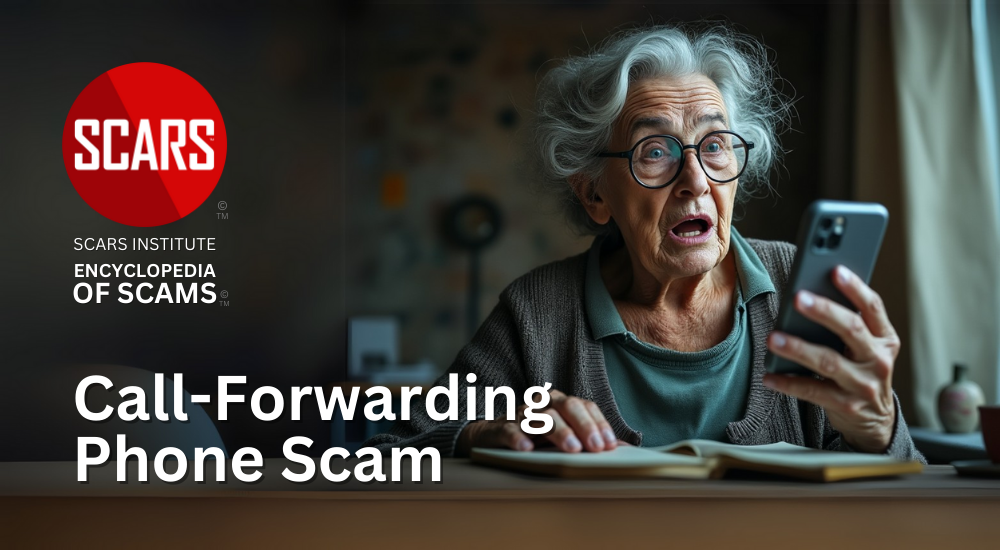

























































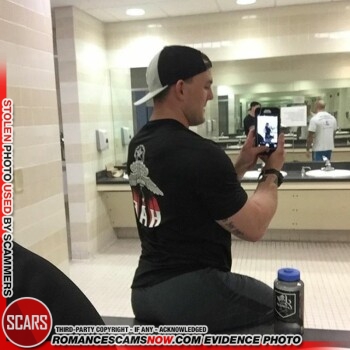















































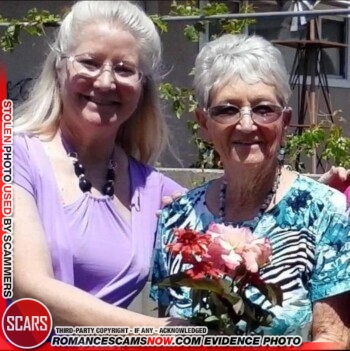





















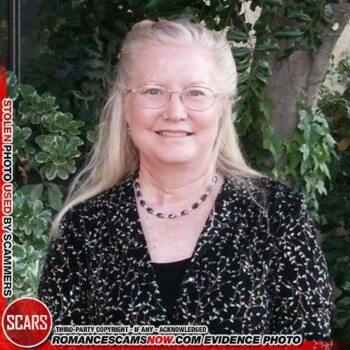

























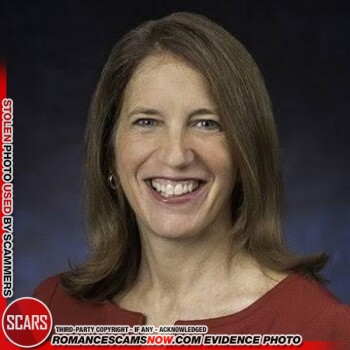















































































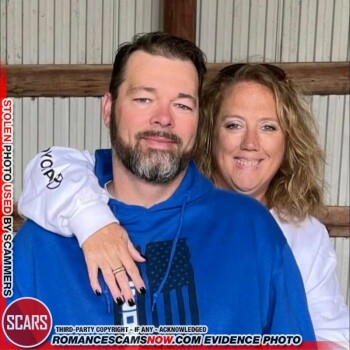














































































Thank you for your comment. You may receive an email to follow up. We never share your data with marketers.